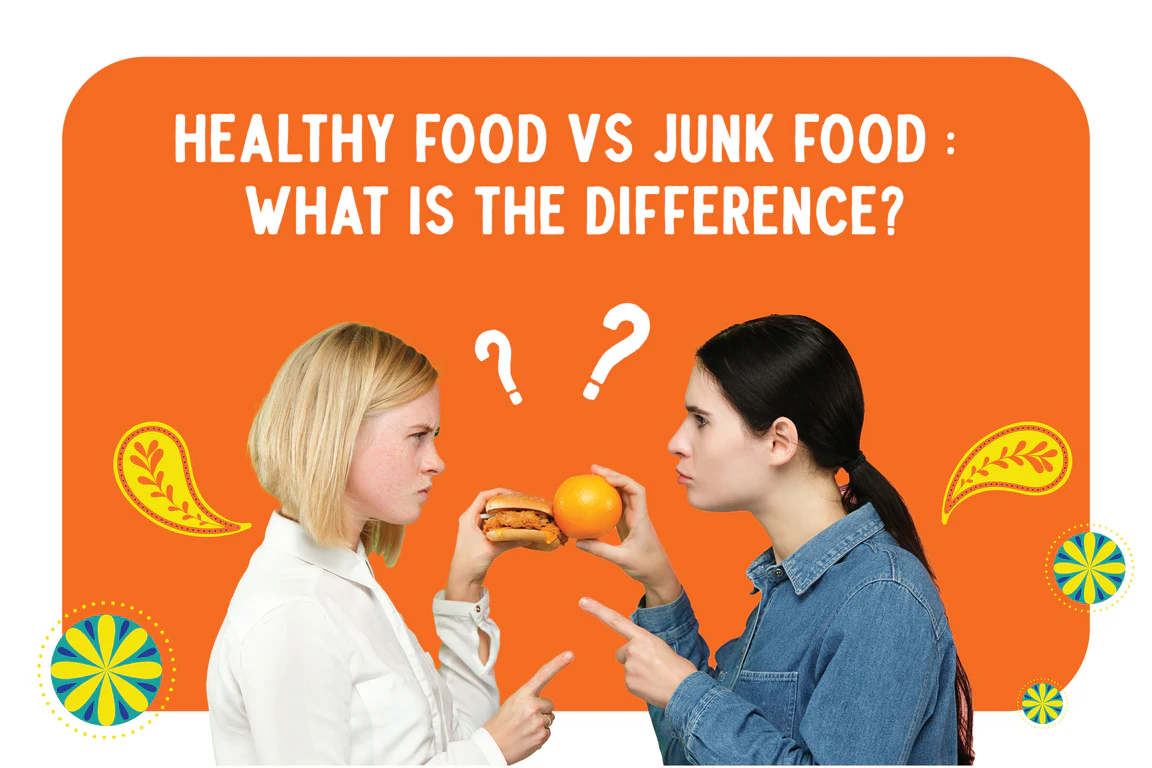Healthy Food vs Junk Food: Finding the Balance for a Better Life
Healthy Food vs Junk Food
In a world where fast food restaurants are as common as grocery stores, and sugary snacks line every supermarket aisle, the choices we make about what we eat have never been more critical. With the rise of health consciousness and wellness trends, understanding the difference between healthy food and junk food is essential for making informed dietary decisions.
Understanding Healthy Food
Healthy food generally refers to items that are nutrient-dense and beneficial to your overall well-being. These foods provide a high concentration of essential nutrients—vitamins, minerals, fiber, and antioxidants—while being relatively low in unhealthy fats, sugars, and sodium.
Key Characteristics of Healthy Food:
- Nutrient Density: Healthy foods, such as fruits, vegetables, whole grains, lean proteins, and nuts, offer a rich array of vitamins, minerals, and other beneficial compounds with fewer calories.
- Whole Ingredients: These foods are often minimally processed and contain whole ingredients. For instance, a fresh apple is more nutritious than apple juice, which may have added sugars and fewer beneficial nutrients.
- Balanced Macros: A well-rounded diet includes a balance of carbohydrates, proteins, and fats from healthy sources. For example, avocados and nuts provide healthy fats, while quinoa and legumes offer protein and fiber.
The Drawbacks of Junk Food
Junk food, on the other hand, tends to be low in essential nutrients and high in unhealthy components like added sugars, saturated fats, and sodium. While they may be convenient and enjoyable, the long-term health effects of consuming too much junk food can be detrimental.
Common Features of Junk Food:
- High in Empty Calories: Junk foods are often high in calories with little to no nutritional value. Examples include sugary sodas, chips, and candy, which provide energy without essential nutrients.
- Excessive Sugar and Fat: Many junk foods are loaded with refined sugars and unhealthy fats, contributing to issues like weight gain, diabetes, and heart disease.
- Additives and Preservatives: Processed foods often contain artificial additives and preservatives that may have adverse effects on health when consumed in large quantities.
The Impact on Health
The choice between healthy food and junk food significantly impacts various aspects of health:
- Weight Management: Consuming high amounts of junk food can lead to weight gain and obesity, while a diet rich in whole, healthy foods supports a healthy weight.
- Chronic Diseases: A diet high in junk food is associated with increased risks of chronic conditions like cardiovascular disease, diabetes, and hypertension. In contrast, a diet focused on healthy foods can help prevent and manage these conditions.
- Mental Well-being: Nutrient-dense foods have been shown to positively affect mood and cognitive function. Conversely, a diet high in processed and sugary foods can contribute to mood swings and cognitive decline.
Finding a Balance
The key to a healthy diet isn’t about completely eliminating junk food but rather finding a balance that works for you. Here are some tips for achieving that balance:
- Moderation: Enjoy junk food in moderation. Allowing yourself the occasional treat can prevent feelings of deprivation and help you maintain a sustainable, healthy diet.
- Smart Swaps: Substitute healthier options for your favorite junk foods. For instance, try baked sweet potato fries instead of regular fries or fresh fruit instead of candy.
- Meal Planning: Plan your meals and snacks ahead of time to ensure you have access to healthy options throughout the day.
- Stay Hydrated: Drinking plenty of water can help manage cravings and keep your body functioning optimally.
Conclusion
In the debate between healthy food and junk food, the goal is not to choose one over the other but to strike a balance that promotes overall health and well-being. By making informed choices and focusing on nutrient-dense foods while allowing occasional indulgences, you can enjoy a varied diet that supports both your physical and mental health. Remember, small, consistent changes in your eating habits can lead to significant improvements in your overall quality of life




